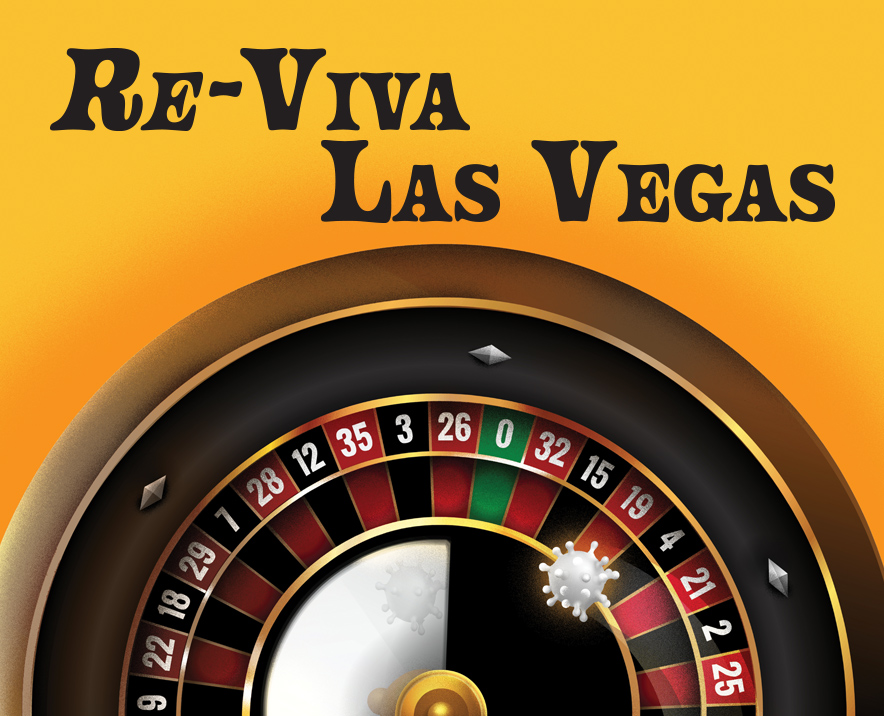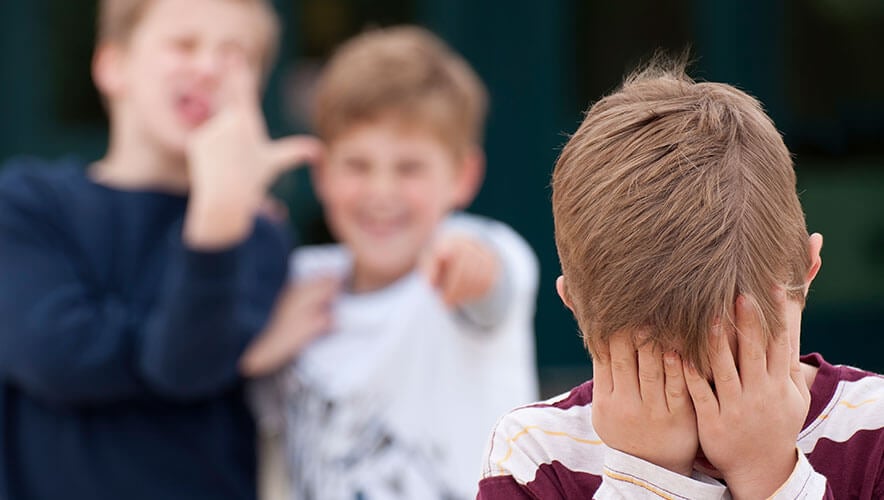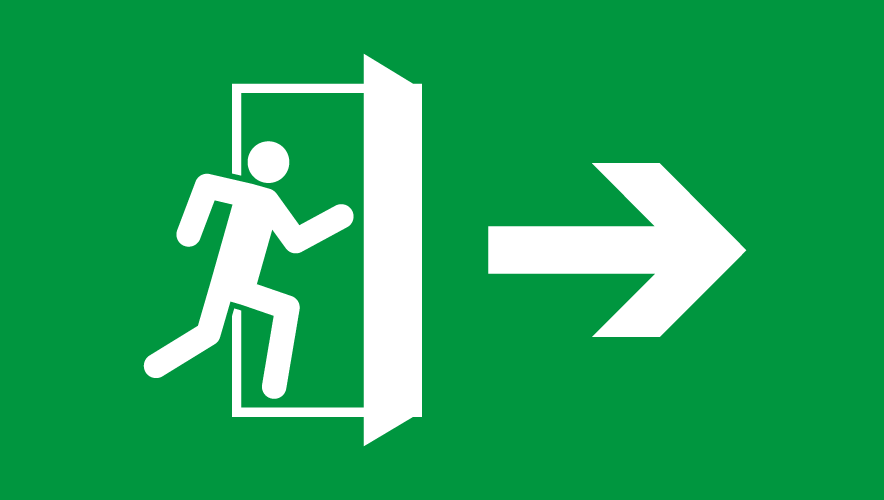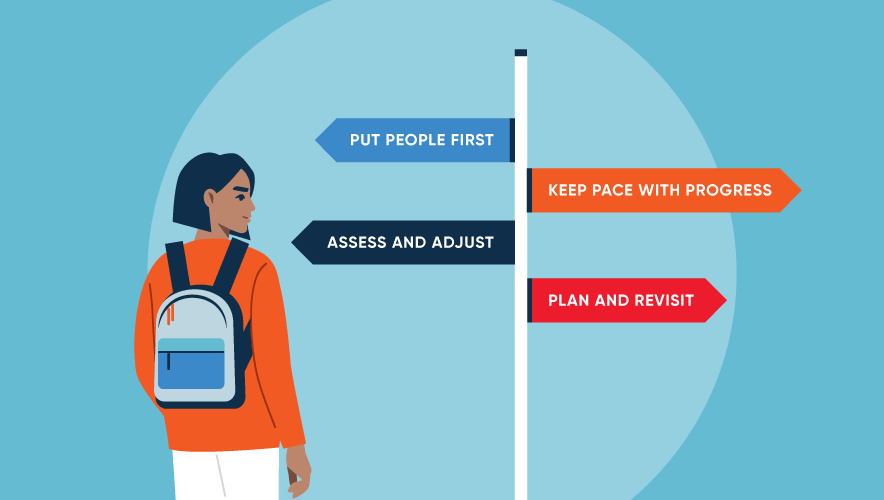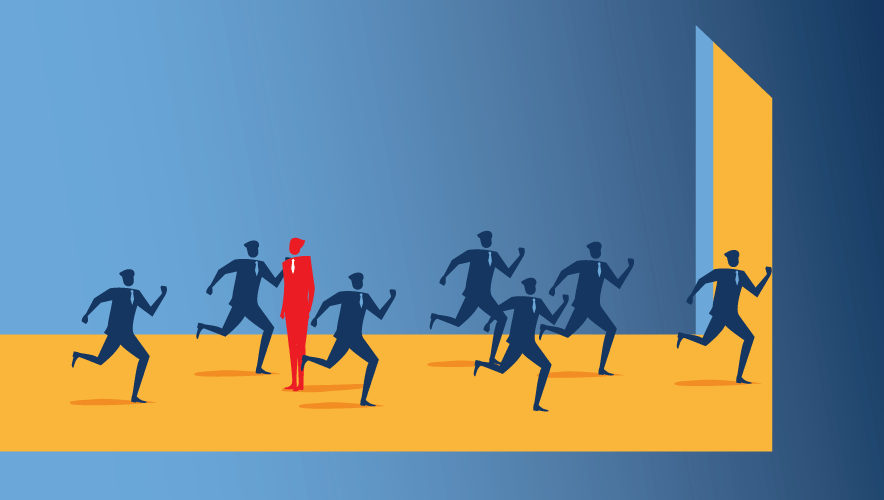Restarting an Economic Engine
The Nevada gaming industry finds itself today at the same crossroads that it did almost 20 years ago in the aftermath of 9/11. Civilian air travel closed in 2001 between 11 September and 13 September, and for almost five months after the attacks people were afraid to fly. People avoided unnecessary travel, and in Las Vegas businesses began rounds of layoffs as fear curbed many would-be guests from visiting the city.
At the start of 2021, the gaming industry is all too aware that the number of visitors will return to pre-pandemic levels only when fear is replaced with confidence in security and complemented by enough discretionary income to propel interest in leisure traveling, gambling, shopping, and fine dining.
Today, just as in those days following 9/11, Nevada looks to the gaming industry—the economic engine of the U.S. state—to provide financial stability and normality. Gaming is inextricably linked to the state’s hospitality, tourism, travel, and entertainment industries, a fact that escapes the notice of most visitors busy basking in the light of the neon capital of the world.
On 20 March 2020, at 11:59 p.m., the lights along the Las Vegas Strip went dark for the first time since 1931—when gambling was legalized and the first casino opened. Despite the gaming industry’s standing as the state’s economic engine, it still did not qualify as an essential business, and casinos—along with the associated industries of hospitality, tourism, travel, and entertainment—closed in adherence with Nevada Governor Steve Sisolak’s directive.
The intricate and innate connections with other industries also result in the gaming industry’s exposure to a kaleidoscope of challenges that are constantly shifting and transcending the property’s threat environment. As in other businesses, the primary mission of a casino’s executive team is to provide a safe and secure environment for everyone—visitors, guests, employees, vendors, contractors, and volunteers—at any time of day and under all threat conditions, regardless of whether that threat presents as a natural disaster, a public health challenge, a life safety emergency, terrorism, human error, or an accident. Even significant incidents that occur off-property can impact a business and its people.
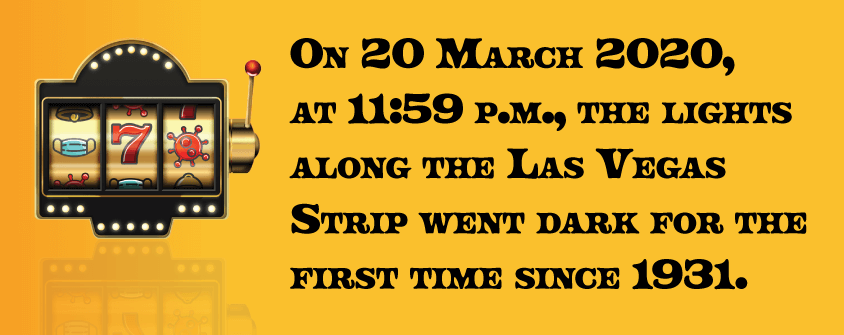
Gaming entities, executives, managers, supervisors, and department heads must plan for each of the above or risk potential legal liabilities stemming from negligence, intentional misconduct, breach of contract, breach of duty, or lack of duty of care. The wrong reaction to a threat condition could result in severe injury, mental trauma, financial loss, psychological anguish, or death.
Gaming organizations have reassessed how to operate since 2001 and again since the beginning of 2020. But the COVID-19 pandemic presents the same minefield of potential legal liabilities. Before considering a course of action and embarking on next steps, responsible gaming leaders must also remember that hundreds of thousands of people—and their families—look to this industry to resolve challenges and provide a future. It is the unwritten responsibility of an economic engine.
Compliance
Information about the pandemic and how to deal with it is coming out in bursts. Social media, Internet searches, academic inputs, regulators, and local and federal government agencies—including the U.S. Centers for Disease Control and Preparedness (CDC), the U.S. Department of Health and Human Services (HHS), and the Occupational Safety and Health Administration (OSHA)—overwhelm our senses with data, recommended guidance, rules, and regulations that may change with the next document or the next day. Industry regulators are adding their own layers of complexity, including demands of strict adherence to directives. Noncompliance will be met with warnings, steep fines, or even the loss of a business license.
For businesses to survive in the short term, compliance is the only solution. But the larger question is: for how long can they comply? Life is unequal, as are the financial resources that businesses can muster in a global pandemic. Some gaming properties, similar to any other business model, have reserves and can promise their employees payment while adhering to stay-home orders; others lack such caches, whether due to remodeling, a recent acquisition, or other financial demands.
When the longevity of the pandemic became apparent, the gaming industry comprehended that for businesses to survive, it would have to reopen and entice guests back. Gaming leaders also knew that the only way people would return to Las Vegas is if they felt as safe as possible, and those leaders have been working to find solutions.
The New Plan
Since the 1918 Spanish Flu pandemic occurred a century ago, the probability that a similar pandemic would emerge was calculated as microscopic—listed on a risk matrix graph at less than one percent. The lower the risk percentage for a threat, the less likely it will occur, so industry leaders focused on the more probable threats of theft, insider threats, and active shooters.
Prior to 2020, biological threats were not primarily associated with pandemics; instead, security departments and businesses focused more on public health emergencies, such as Legionnaire’s Disease or the West Nile virus. When the cross-industry business and personal safety impacts of COVID-19 became clear, industry leaders knew even before 20 March that an entirely new strategy for the future of gaming security was necessary.
Decisions could not be made in a vacuum; plans for how to safely reopen involved as many perspectives as possible. Leaders have not solely considered their prospective guests. These elaborate planning sessions also incorporated the safety of employees, vendors, contractors, and tenant properties. During this process, the staff seated around the war table represented all operational departments: legal, human resources, security, hospitality, food and beverage, maintenance and facilities, casino operations, entertainment, nightclubs, and sporting events. In the new pandemic business model, no department can be excluded, and each voice must be heard because any area could be the virus’s next hot spot.

Another influential group in Las Vegas is the Culinary Union, which represents more than 60,000 guest room attendants, cocktail and food servers, porters, bellmen, cooks, laundry staff, and kitchen workers. The Culinary Union wanted to see casinos’ pandemic plans before allowing its workers to return. If the union believed its workers would be in an unsafe work environment, it would not let them return. The employees and their families also wanted to see a plan, especially because they could possibly bring the virus home from work to their children and elderly relatives.
Gaming organizations’ new pandemic plans are living documents that keep growing, changing, and adapting to outside forces. For example, the Nevada Gaming Control Board had rolling requests for a written plan prior to any reopening considerations for individual casinos. Also, any new CDC guidance can inform, alter, and improve reopening plans.
In an unprecedented move, Wynn Las Vegas released a 23-page document on 19 April, outlining its new healthcare sanitation plan. This plan became the current guidance document for not only the gaming industry to follow, but also for all associated industries.
Walk Before You Run
Part of the sense of a shared responsibility comes from observing the ground-floor consequences of even short-term closures. The Las Vegas region was seeing another destructive repercussion of the coronavirus as the unemployment rate rose to 28.2 percent in May 2020, according to a May issue of The Reno Gazette Journal, and hundreds of small and medium-sized business es permanently closed, based on news articles and various interactions with the local business community.
Even as coronavirus infections were steadily dropping, roughly 300,000 Clark County, Nevada, residents were facing eviction before Sisolak’s May announcement of reopening guidance. This gave the gaming industry permission to reopen on 4 June 2020 at a 50 percent occupancy rate.
Even with a honed pandemic plan in place, gaming properties took a hard look at operational efficiencies, staffing requirements, projected visitor volumes, and costs before revealing their business strategies.
Some mega resorts would have to consider up to 11 different marketing strategies because their properties can include gaming, shopping, hotels, restaurants, entertainment venues, conventions, nightclubs and day clubs, sporting events, movie theaters, sporting parks (i.e., golf, bowling, or ice skating), and special features like aquariums or museums. Additionally, most Las Vegas casinos are part of gaming corporations, where several casinos are owned by a single parent company.
In the end, a new strategy was enacted across the industry. Following a cautiously optimistic yet financially feasible plan, various casinos under the same corporate umbrella remained closed, allowing for a small percentage to reopen to test visitor volumes and pandemic measures.
Compounding these efforts, nightclubs, day clubs, convention centers, sporting events, gaming tournaments, entertainment venues, and entire hotel towers remained closed. Social distancing, mask rules enforcement, and cleaning requirements drove these decisions, because potential economic benefits were tempered by liability, regulatory fines, and acceptance by the Culinary Union and employees.
Betting on Cooperation
For a gaming property, the reopening plan deals with only a portion of the obstacles and concerns arising from a pandemic. Mitigation, preparedness, response, and recovery are the classic guiding categories during emergencies and disasters. A misstep in these categories could open the door to legal liabilities and employee entanglements.
In preparation for reopening, personal protective equipment (PPE), cleaning products, and technology enhancements must be secured, and employees must be trained on all new technology and procedures.
During normal operations, observations are conducted and actions corrected if improperly executed. That sense of shared risk and responsibility among all departments and persons extends to the enforcement of reopening protocols, which cannot be the sole discretion of security or managers. The eyes and ears of the casino go well beyond surveillance cameras, because all employees have a role in contributing to their safety and the safety of those around them.
Just as before the pandemic, social media also has a role in the current enforcement matrix. Posts and videos about gaming properties (inside and out) may provide clear evidence of infractions of protocols or policies that might otherwise go unnoticed.
There are also circumstances that gaming leaders must be prepared for before committing to reopening, especially if the goal is safety and minimizing liability during the pandemic.
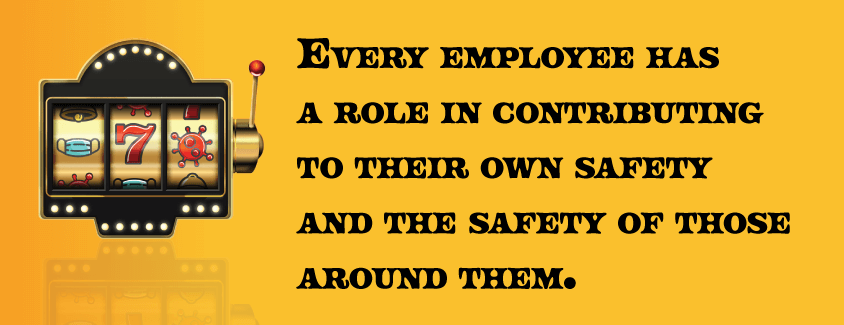
Hypothetically, a customer without a mask has been drinking heavily and begins to approach people to engage in a conversation, sneezing and coughing on them. How will the security team respond and treat the guest? Can the casino legally require this customer to take a 15-minute COVID-19 test available on-site, or just present it as an offer? If the casino doesn’t have a quick test available, what happens then? And how does the team protect the other guests this customer tries to interact with?
This scenario and others like it demand thorough discussions with legal, human resources, and executive management due to the potential of liability and employee disciplinary action. The security department needs to understand how to respond to such incidents in accordance with its training or the pandemic operations plan. Having an organization’s subject matter experts help develop proper response plans can help quell future litigation as gaming businesses are attempting to work not only with federal, state, and local or regional authorities, but also with OSHA, another potential liability source.
An employee being exposed to COVID-19 in the gaming environment is another very real and deadly possibility. Unlike other threatening situations a casino would prepare for pre-pandemic—such as a robbery, assault and battery, or cheating—if COVID-19 is transmitted to an employee during the execution of his or her duties, there is the potential for the virus to spread to the employee’s family members.
When an employee tests positive, the standard investigative process should include determining who he or she was in contact with, where he or she has been, and when. The casino industry generally applies a “what if” approach to incident response planning, attempting to cover all conceivable incident scenarios. If there are 15 different scenarios to one type of incident, the casino will begin with discussions between security managers, supervisors, and trainers. Their responses to the scenarios are then forwarded to the legal and human resources departments for consideration and comments. Once a final version is developed, employee training will begin to ingrain the vetted responses into action.
These incidents represent only a small sampling of events where security officers, coworkers, and customers are operationally confronted with potential exposure to COVID-19. All industries are facing events where they could be given written notice of an infraction, substantially fined, or have their business license revoked for providing an unsafe environment.
When the 1918 Spanish Flu pandemic devastated the world and the United States, lawsuits were rare. That is not the case today. Regarding liability, foreseeability, standard of care, and general duty clause, the legal landscape is muddy and will likely only get murkier.
As of Security Management’s press time, the world lacks a widely distributed vaccine to negate the deadly effects of COVID-19, so casino and gaming security professionals must plan for pandemic fatigue and mitigate risks with enhanced technologies and more effective procedures and processes.
For the businesses that compose an economic engine confronting the pandemic, there can be no weak links—only a formidable and impermeable strategy that will outlast the pandemic. The economy of the area and the leisure, livelihoods, and lives of guests, employees, and citizens depend on it.
Dave Shepherd is the CEO of Readiness Resource Group, which focuses on risk and crisis preparedness. He is also a member of ASIS International and the ASIS Gaming and Wagering Protection Community. He holds an MBA in Management and a MPJA from Golden Gate University in San Francisco.
Sara Mosqueda is assistant editor at Security Management. Connect with her at [email protected]. Follow her on Twitter: @ximenawrites.
